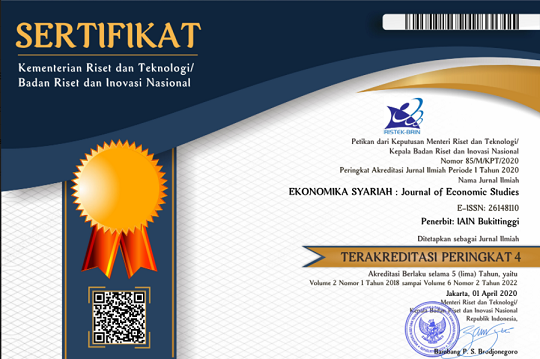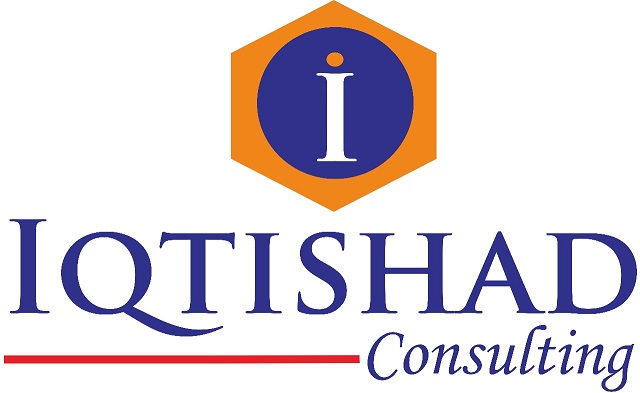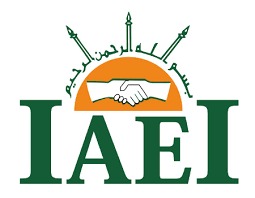Determinant of Tourist Satisfaction on Halal Tourism: Examining the Religious Aspect as a Moderating Variable
DOI:
https://doi.org/10.30983/es.v6i1.5575Keywords:
halal tourism, Islamic attribute, pull motivation, push motivation, tourist satisfactionAbstract
The objectives of this study are to test the relationship between tourism motivations and tourist satisfaction, and to test how ‘Religion’ moderates the relationship in Bukittinggi City, West Sumatera. The variable ‘Religion’ is represented by the availability of Islamic norms and practices which are relevant to tourism at the destination. The results of the Partial least square (PLS) indicated that the tourism motivations are significantly and positively related to tourist satisfaction. The results also showed that Islamic attribute significantly affect the tourist satisfaction. Travel motivation consisting of pull motivation and push motivation has also been shown to have a significant effect on tourist satisfaction.
Tujuan dari penelitian ini adalah untuk menguji hubungan antara motivasi wisata dan kepuasan wisatawan, dan untuk menguji bagaimana 'Agama' memoderasi hubungan tersebut. Studi kasus dalam Penelitian ini adalah Halal Tourism di Kota Bukittinggi, Sumatera Barat. Variabel ‘Agama’ diwakili oleh tersedianya norma dan praktik Islam yang relevan dengan pariwisata di destinasi. Hasil Partial least square (PLS) menunjukkan bahwa motivasi wisata berhubungan positif dan signifikan dengan kepuasan wisatawan. Hasil penelitian juga menunjukkan bahwa atribut Islami berpengaruh signifikan terhadap kepuasan wisatawan. Motivasi perjalanan yang terdiri dari motivasi tarikan dan motivasi dorongan juga terbukti memiliki pengaruh yang signifikan terhadap kepuasan wisatawan.
References
Roscoe, John T., Fundamental Research Statistics for the Behavioral Sciences, 2nd edition (New York: Holt, Rinehart and Winston, 1975)
Sekaran, Uma, and Roger Bougie, Research Methods for Business, 7th edn (West Sussex: John Wiley & Son, 2016)
Acharya, Ram N., and Jay Lillywhite, ‘The Role of Push and Pull Motivations on Satisfaction and Consumer Loyalty to Agricultural Fairs’, Agriculture (Switzerland), 11.10 (2021) <https://doi.org/10.3390/agriculture11100923>
Battour, Mohamed, Moustafa Battor, and Muhammad Awais Bhatti, ‘Islamic Attributes of Destination: Construct Development and Measurement Validation, and Their Impact on Tourist Satisfaction’, International Journal of Tourism Research, 16.6 (2014), 556–64 <https://doi.org/10.1002/jtr.1947>
Battour, Mohamed, and Mohd Nazari Ismail, ‘The Role of Destination Attributes in Islamic Tourism’, SHS Web of Conferences, 12.May (2014), 01077 <https://doi.org/10.1051/shsconf/20141201077>
Battour, Mohamed, Mohd Nazari Ismail, and Moustafa Battor, ‘The Impact of Destination Attributes on Muslim Tourist’s Choice’, International Journal of Tourism Research, 13.6 (2011), 527–40 <https://doi.org/10.1002/jtr.824>
Bhuiyan, Md Anowar Hossain, Chamhuri Siwar, Shaharuddin Mohamad Ismail, and Rabiul Islam, ‘Potentials of Islamic Tourism: A Case Study of Malaysia on East Coast Economic Region’, Australian Journal of Basic and Applied Sciences, 5.6 (2011), 1333–40
Brown, T. A, and M. T Moore, ‘Confirmatory Factor Analysis. In R. H. Hoyle (Ed.)’, in Handbook of Structural Equation Modeling (The Guilford Press, 2012), pp. 361–379
Caber, Meltem, and Tahir Albayrak, ‘Push or Pull? Identifying Rock Climbing Tourists’ Motivations’, Tourism Management, 55 (2016), 74–84 <https://doi.org/10.1016/j.tourman.2016.02.003>
Chen, Ching Fu, and Dung Chun Tsai, ‘How Destination Image and Evaluative Factors Affect Behavioral Intentions?’, Tourism Management, 28.4 (2007), 1115–22 <https://doi.org/10.1016/j.tourman.2006.07.007>
Chon, Kye-sung, ‘Understanding Recreational Travelers’ Motivation, Attitude and Satisfaction’, The Tourist Review, Vol. 44, 44 (1989), 3–7
Chon, Kye-Sung, and Michael D Olsen, ‘Functional and Symbolic Approaches to Consumer Satisfaction/Dissatisfaction in Tourismâ€â€™, Journal of The International Academy of Hospitality Research, 8.3 (1991), 55
Crompton, John L., ‘Motivations for Pleasure Vacation’, Annals of Tourism Research, 6.4 (1979), 408–24 <https://doi.org/10.1016/0160-7383(79)90004-5>
Dann, Graham M, ‘Tourist Motivatio An Appraisal’, Annals of Tourism Research, VIII.2 (1981), 187–219
Elaziz, Muhammet Fatih, and Abdurrahman Kurt, ‘Religiosity, Consumerism and Halal Tourism: A Study of Seaside Tourism Organizations in Turkey’, Tourism, 65.1 (2017), 115–28
Gaki, Eleni;, Kostopoulou, Stella;, Evangelia; Parisi, Lagos, and others, ‘The Evaluation of Tourism Satisfaction in Island Destinations: The Case of The Ionian Islands of Greece’, in 56th Congress of the European Regional Science Association: ‘Cities & Regions: Smart, Sustainable, Inclusive?’, 23-26 August 2016, Vienna, Austria (European Regional Science Association (ERSA), 2016)
Jaelani, Aan, ‘Halal Tourism Industry in Indonesia: Potential and Prospects’, SSRN Electronic Journal, 76237, 2017 <https://doi.org/10.2139/ssrn.2899864>
Khuong, Mai Ngoc, and Huynh Thi Thu Ha, ‘The Influences of Push and Pull Factors on the International Leisure Tourists’ Return Intention to Ho Chi Minh City, Vietnam — A Mediation Analysis of Destination Satisfaction’, International Journal of Trade, Economics and Finance, 5.6 (2014), 490–96 <https://doi.org/10.7763/ijtef.2014.v5.421>
Kim, Samuel Seongseop, Choong Ki Lee, and David B. Klenosky, ‘The Influence of Push and Pull Factors at Korean National Parks’, Tourism Management, 24.2 (2003), 169–80 <https://doi.org/10.1016/S0261-5177(02)00059-6>
Mansouri, Shirzad, ‘Role of Halal Tourism Ideology in Destination Competitiveness: A Study on Selected Hotels in Bangkok, Thailand’, in International Conference on Law, Education and Humanities (ICLEH’14) Jan. 30-31, 2014 Pattaya (Thailand) (Pattaya, 2014)
McDowall, Siriporn, ‘International Tourist Satisfaction and Destination Loyalty: Bangkok, Thailand’, Asia Pacific Journal of Tourism Research, 15.1 (2010), 21–42 <https://doi.org/10.1080/10941660903510040>
Nikjoo, Adel H., and Mahmoud Ketabi, ‘The Role of Push and Pull Factors in The Way Tourists Choose Their Destination’, Anatolia, 26.4 (2015), 588–97 <https://doi.org/10.1080/13032917.2015.1041145>
Organisation Of Islamic Cooperation (OIC), Strategic Roadmap for Development of Islamic Tourism in OIC Member Countries, 2018
Pizam, Abraham, Valeriya Shapoval, and Taylor Ellis, ‘Customer Satisfaction and Its Measurement in Hospitality Enterprises: A Revisit and Update’, International Journal of Contemporary Hospitality Management, 28.1 (2016), 2–35 <https://doi.org/10.1108/IJCHM-04-2015-0167>
Prasad, Swati, GGirish Karunakaran Nair, and Harsh Purohit, ‘Tourist Satisfaction: An Analysis of Push and Pull Factors - a Case of Qatar Tourism’, Journal of Management, 6.2 (2019) <https://doi.org/10.34218/jom.6.2.2019.022>
R. L., Oliver, ‘A Cognitive Model of the Antecedents and Consequences of Satisfaction Decisions’, Journal of Marketing Research, 17(4).November (1980), 460–69
Sadeh, Ehsan, Farid Asgari, Leila Mousavi, and Sina Sadeh, ‘Factors Affecting Tourist Satisfaction and Its Consequences’, J. Basic. Appl. Sci. Res, 2.2 (2012), 1557–60
Saharuddin, Desmadi, and Ilda Hayati, ‘Islamic Perspective on Tourism and Its Benefits’, Majalah Ilmu Pengetahuan Dan Pemikiran Keagamaan Tajdid, 23.1 (2020), 10–19
Sánchez, Javier, LuÃs Callarisa, Rosa M. RodrÃguez, and Miguel A. Moliner, ‘Perceived Value of the Purchase of a Tourism Product’, Tourism Management, 27.3 (2006), 394–409 <https://doi.org/10.1016/j.tourman.2004.11.007>
Suradin, Muhammad, ‘Halal Tourism Promotion in Indonesia :An Analysis on Official Destination Websites’, Journal of Indonesian Tourism and Development Studies, 6.3 (2018), 143–58 <https://doi.org/10.21776/ub.jitode.2018.006.03.01>
Uysal, Muzaffer, and Claudia Jurowski, ‘Testing the Push and Pull Factors’, Annals of Tourism Research, 21.4 (1994), 844–46 <https://doi.org/10.1016/0160-7383(94)90091-4>
Vargas-sanchéz, Alfonso, and Mirko Perano, ‘Halal Tourism through the Lens of Generation Z in a Muslim Majority Country : Implications on Tourist Services’, 13.9 (2018), 36–49 <https://doi.org/10.5539/ijbm.v13n9p36>
Weidenfeld, Adi, and Amos S. Ron, ‘Religious Needs in the Tourism Industry’, Anatolia: An International Journal of Tourism and Hospitality Research, 19.2 (2008), 357–61 <https://doi.org/10.1080/13032917.2008.9687080>
Widhasti, Garit Bira, Christy Damayanti, and Herning Suryo Sardjono, ‘Diplomasi Publik Pemerintah Republik Indonesia Melalui Pariwisata Halal’, Jurnal Solidaritas, 1.1 (2018)
World Travel Market, ‘WTM Global Trends Report 2007 In Association With ’:, 2007, 18–21
Yan, Lee Shi, Nor Amirah Zahari, Aimi Sara Ismail, and Norhidayu Muhamad Zain, ‘Halal Tourism: A New World for Tourism Industry’, International Journal of Asian Social Science, 7.8 (2017), 643–57 <https://doi.org/10.18488/journal.1.2017.78.643.657>
Yoon, Yooshik, and Muzaffer Uysal, ‘An Examination of the Effects of Motivation and Satisfaction on Destination Loyalty: A Structural Model’, Tourism Management, 26.1 (2005), 45–56 <https://doi.org/10.1016/j.tourman.2003.08.016>
Downloads
Published
Issue
Section
License
Authors who publish with this journal agree to the following terms:
- Authors retain copyright and grant the journal right of first publication with the work simultaneously licensed under a Creative Commons Attribution-ShareAlike 4.0 International License that allows others to share the work with an acknowledgment of the work's authorship and initial publication in this journal.
- Authors are able to enter into separate, additional contractual arrangements for the non-exclusive distribution of the journal's published version of the work (e.g., post it to an institutional repository or publish it in a book), with an acknowledgment of its initial publication in this journal.
- Authors are permitted and encouraged to post their work online (e.g., in institutional repositories or on their website) prior to and during the submission process, as it can lead to productive exchanges, as well as earlier and greater citation of published work (See The Effect of Open Access).













